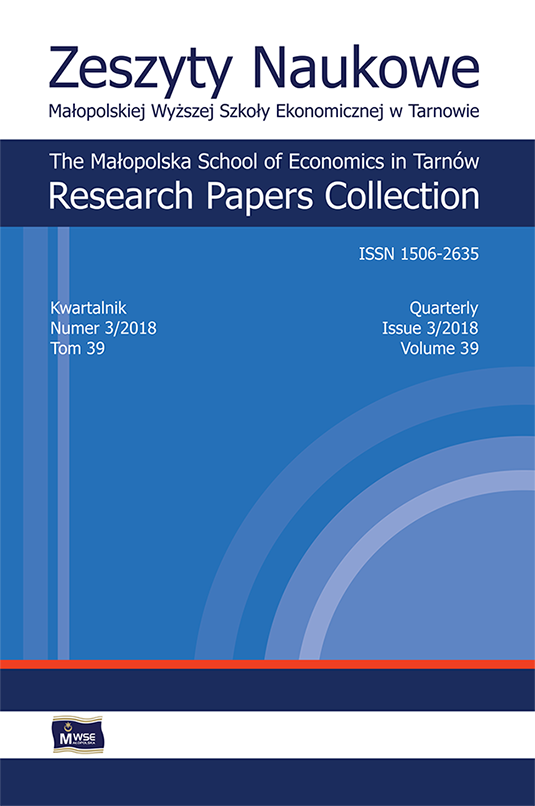Abstract
The aim of the article is identification and classification of IT instruments used in remote teaching and discuss, especially these applications. They have use in regard to corporate e-learning. The assumption was approved that achievement of high teaching efficiency is possible only due to matching TI tools to the e-learning object and elements. The research methods were used to accomplishment such a presented purpose: analysis of research results of predecessors and expert assessment of TI tools used in corporations. In particular, the development of information technology in remote teaching was presented. In addition, LMS and LCMS systems were characterized to ensure efficient and effective carrying out a training course in e-learning mode. The article also shows a discussion about the concept of remote teaching, corporate e-learning. At the same time, the importance of this process for socioeconomic development of the country was emphasized. The stages of development (generations) of information technologies used in remote teaching were determined and forms of training in e-learning mode were presented. At the end of the article, the problem less known to a wider circle of readers is highlighted. Namely, limiting nonpublic knowledge in the remote teaching process – this is an important factor in acquiring knowledge by various organizations. By communicating more and more information, the Internet and other IT tools. They create ever-growing sets of secret knowledge – which strongly affects the quality of the information provided.
References
Bendyk, E. (2018). Sieć wszystkich i wszystkiego. Polityka, 51, 87–89.
View in Google Scholar
Hajduk, R. (2001). 10 lat polskiego Internetu [online, dostęp: 2004-09-22]. PC World. Dostępny w Internecie: http://www.pcworld.pl/artykuly/10106.html.
View in Google Scholar
Horton, W. (2000). Designing Web-Based Training: How to Teach Anyone Anything Anywhere Anytime. New York: Wiley. ISBN 047135614X.
View in Google Scholar
Hyla, M. (2003). Wymiary e-learningu – czyli gdzie szukać własnego ja w spektrum technologii. Zarządzanie i Rozwój, 12, 14–19. .
View in Google Scholar
Hyla, M. (2005). Przewodnik po e-learningu. Kraków: Oficyna Ekonomiczna. ISBN 8389355752.
View in Google Scholar
Wrycz, S. (red.). (2010). Informatyka ekonomiczna: podręcznik akademicki. Warszawa: Polskie Wydawnictwo Ekonomiczne. ISBN 9788320818635.
View in Google Scholar
Kisielnicki, J. (2014). Zarządzanie i informatyka. Warszawa: Placet. ISBN 9788374881845.
View in Google Scholar
Kozioł, M. (2018). Wykorzystanie e-learningu w procesie szkolenia pracowników małych i średnich przedsiębiorstw. Pelplin: Wydawnictwo Bernardinum.
View in Google Scholar
Mayer-Schönberger, V., Cukier, K. (2017). Big data: rewolucja, która zmieni nasze myślenie, pracę i życie: efektywna analiza danych. Warszawa: Wydawnictwo MT Biznes. ISBN 9788380873100.
View in Google Scholar
Perechuda, K. (red.). (2005). Zarządzanie wiedzą w przedsiębiorstwie. Warszawa: Wydawnictwo Naukowe PWN. ISBN 8301144920.
View in Google Scholar
Surma, J. (2017). Cyfryzacja życia w erze Big Data: człowiek, biznes, państwo. Warszawa: Wydawnictwo Naukowe PWN. ISBN 9788301196066.
View in Google Scholar
Taylor, J.C. (2001). Fifth Generation Distance Education: 20th World Conference on Open Learning and Distance Education “The Future of Learning Learning for the Future: Shaping the Transition” [online, dostęp: 2004-06-16]. Düsseldorf. Dostępny w Internecie: www.fernuni-hagen.de/ICDE/D-2001/final/keynote_speches/wednesday/taylor_keynote.pdf.
View in Google Scholar
Zając, M., Witek, K. (2011). Web 2.0 na uczelni – przegląd badań i aplikacji [online, dostęp: 2011-06-27]. E-mentor, 40(3). Dostępny w Internecie: www.e-mentor.edu.pl/artykul/index/numer/40/id/846.
View in Google Scholar
Zieliński, Z. (2012). E-learning w edukacji: jak stworzyć multimedialną i w pełni interaktywną treść dydaktyczną. Warszawa: Helion. ISBN 9788324634088.
View in Google Scholar
© Copyright by Małopolska School of Economics in Tarnów. The articles are available under the Creative Commons Attribution NonCommercial-NoDerivatives 4.0 International License


